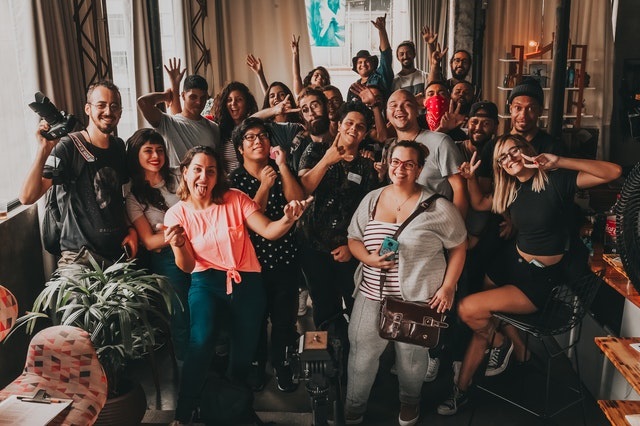The Secret to Living a Healthier Longer Life
is the Richness' of Your Social Life

Are you a person who spends too much time online or on the phone compared to the time spent face to face with your family and friends? Do you experience loneliness or isolation often? Do you feel satisfied with your current social interactions?
Sadly, in our modern-day society spending time with people through face-to-face interactions are dwindling, and yet the latest research is showing that they're the most valuable. Especially in terms of how such interactions affect your health and wellbeing. In contrast, researchers also state that social isolation (e.g. where social connections are limited or absent) may carry a similar risk of mortality to that of smoking.
Fortunately, numerous recent landmark studies are concluding that people with strong social connections tend to live healthier and longer lives. In fact, the research studies are surprisingly strong in terms of an 'active social life' helping you live longer. Amy Roeder refers to Marta Zaraskas science based books and highlighted that a persons mental state can directly impact the body's biological responses, and further states that...
"Loneliness can increase cortisol and inflammation in the body (both of which are triggers for disease), yet the opposite occurs (e.g. activation of beneficial biological responses) when social integration regularly occurs" [1]
Susan Pinker in her TED Talk explains why social interaction heads the list in terms of what you can practice to help you live a longer healthier life and reinforces why it's very important to have and maintain strong ties with your family and friends. Learn more from her TED talk on video link here; https://www.ted.com/talks/susan_pinker_the_secret_to_living_longer_may_be_your_social_life#t-518751

Why an Active and Integrative Social Life Can Help You Live Longer
In referring to an article published by the prestigious Harvard TH Chan School of Public Health in the U.S. and after the final review of 148 high-end research studies; it concluded,
"People who are isolated face a 50% greater risk of premature death, than those who have stronger social connections" [1]
A question beckons; why does this risk of early mortality occur?
According to Lisa Berkman the director of the Harvard Centre of Population and Development studies - it's the stress of isolation that can weaken a person's immune system that makes them vulnerable. Further explaining that ongoing isolation can make them more susceptible to infections or disease; higher levels of inflammation in the body; and, increased blood pressure or depression.
Other studies support these findings and even take it a step further by surfacing that women in mid-life can be particularly vulnerable, and yet if they can can just strive to develop, or maintain a strong network of friends, coupled with frequent interactions - then, they're more likely to get to 60 years or even 85 years or older. [3]

Conclusion
So the moral of the story is this. You can 'Grow Young' not old and to achieve this you have to maintain a strong social life and interact regularly with friends. Why? Because being connected with others is just as powerful as a healthy diet or exercise routine in terms of personal health and your overall mental wellbeing.

Refs:
1. Harvard T. H. Chan 'An active social life may help you live longer.' School of Public Health. Boston U.S.A. Article cited online at https://www.hsph.harvard.edu/news/hsph-in-the-news/active-social-life-longevity/
2. Roeder, A. (2019). 'Wider Social Network may help women live longer.' Harvard T.H. Chan School of Public Health October 17, 2019.
3. Hopper, E. (2020). 'How social lives impact our health and may help you live longer.' Greater Good Magazine, Mind & Body. Published July 28, 2020.
Photo Image Credits:
1. Kampus Productions, Pexels. 2. Bertelli, Pexels. 3. Kendel Media, Pexels

